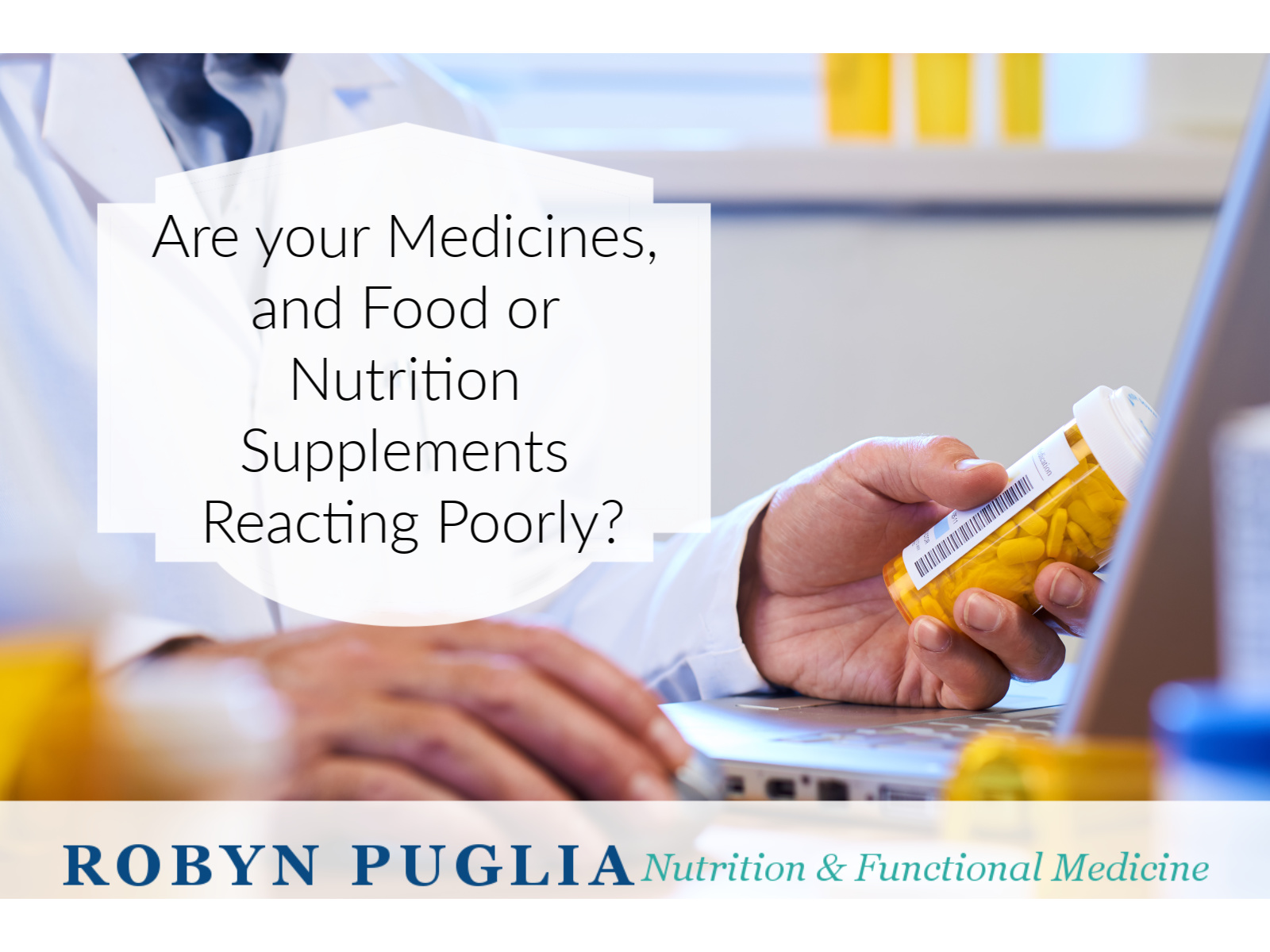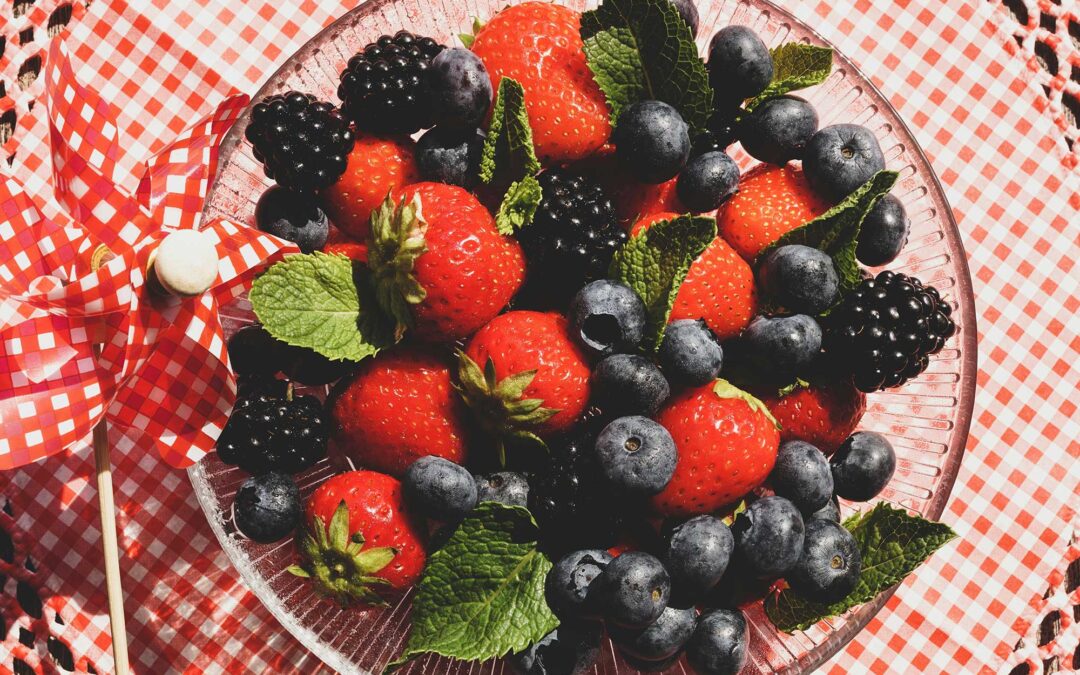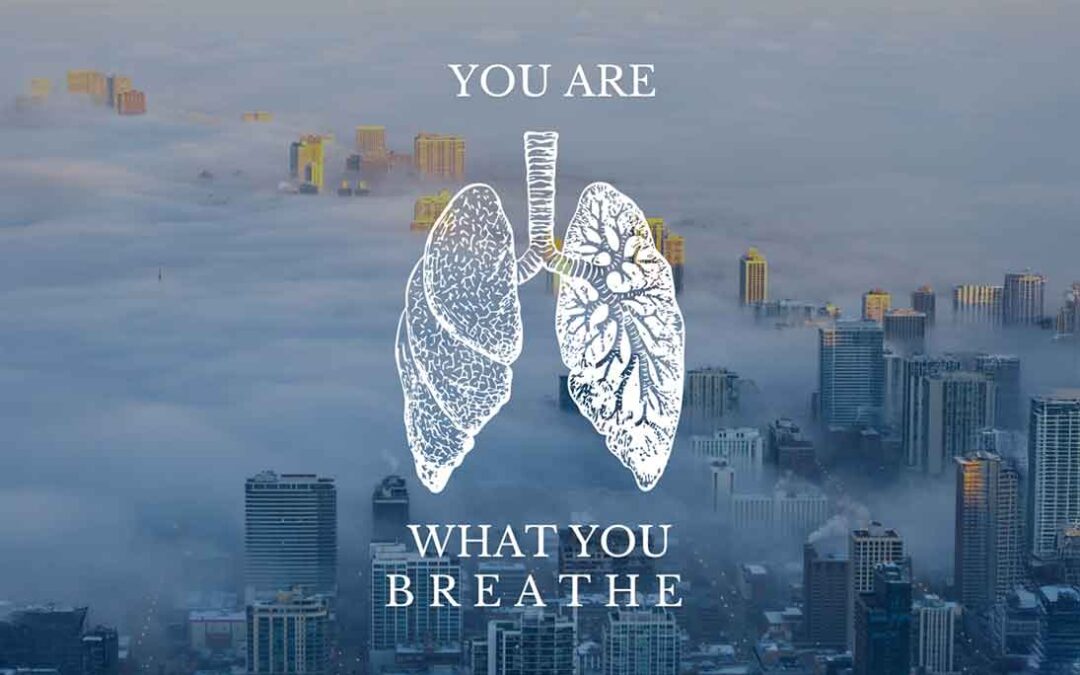6 Common Medication Groups – How They Interact with Your Foods and Supplements
A large number of my patient population are taking pharmaceutical medication. If you have an autoimmune disease you may be taking immune suppressants, anti-inflammatories or pain medication. Even in non-autoimmune cases there are many medicines such as the contraceptive pill or over the counter pain meds that are commonly used.
However, just because something is used commonly doesn’t mean there are no side effects or consequences to consider. And when it comes to combinations of medicines, people taking greater than five drugs at a time or drugs with significant impact such as immune suppressants or antidepressants, knowing the side effects, consequences and interactions is extremely important for me as a clinician so that I can make safe and effective, personally tailored recommendations.
NOTE: This post is for information only. Please discuss any information from this article with your doctor or health care provider before taking any action for yourself.
Your degree of interaction and individual response to drugs can vary, as it’s affected by your:
- Age
- Gender
- Liver function
- Genetic variations
- Overall health
- Weight
- Number of drugs being taken at one time
- Number of different drugs, supplements, and herbs being used at one time
But what makes drug interactions so important?
What Are Drug Interactions?
Whether your doctor has prescribed a particular medicine, or you’ve picked up something over-the-counter from the pharmacy, it has the potential to interact with other medicines, herbal remedies, stimulants, and nutrients. Often this causes an adverse effect. Sometimes your prescription may include instructions to take on an empty stomach, or 2 hours after another medicine, as a way to avoid these interactions.
Examples of drug interactions include:
- Negative interaction with food
- Certain chemicals in food can reduce the absorption of your medicine, such as the phytates in grains or tannins in tea. Slower absorption can cause the medication to work more slowly, or even blunt the effect. This causes minimum disruption if taking an OTC medicine for a mild ailment, but it can cause problems if you are taking antibiotics for a serious infection.
- Certain foods can have a negative effect on liver detoxification, amplifying the time that your medication stays in your body. For example: grapefruit or grapefruit juice works in this way to essentially increase the dosage – and this effect can last up to 24 hours after consumption.
- Positive interaction with food – It may be recommended that you take medicines such as NSAIDs, Zinc, or Carnosine with food. As these medications can irritate or damage your gastro-enteric tract, it’s important to “cushion” them with food.
- Exaggerated effect with certain foods or beverages – One example: the reason you should never mix sleeping pills and alcohol is that they both slow respiration and heart rate. Mixing the two can be fatal.
- Interactions with blood thickness – If a medication has an effect on blood clotting or bleeding as the main function or as a side effect, you may have to be careful with certain foods and supplements. For example, ginger, fish oil, vitamin K, and Ginkgo Biloba can all affect blood viscosity and need to be avoided when taking certain medicines.
Here are six widespread types of medicines, and what you ought to keep in mind with regards to the possible interactions. Some of these interactions may be surprising to you as they include many normally benign foods, but the way they interact with your body and the drugs you take can be risky.
(Please remember – always consult a doctor before stopping any of your medication.)
#1 Paracetamol
Paracetamol (also known as acetaminophen) is a common painkiller used to control fever, aches, and pains. It’s often found in cold and flu medications, menstrual pain relief, sinus targeting medication, and cough suppressants.
Avoid taking paracetamol if you:
- Struggle with poor nutrition
- Are allergic to paracetamol
- Have acute liver failure or liver problems including acute inflammation of the liver (hepatitis)
- Have severe renal impairment
- Are in shock
- Have previously overdosed on paracetamol
Negative food, nutraceutical, and herbal medicine interactions include:
- Alcohol – As both alcohol and paracetamol can damage your liver, taken together they can be dangerous – even at low doses. Taking paracetamol at a different time of the day won’t help either. Alcohol should be avoided.
- Vitamin C and citrus fruits – You shouldn’t take more than 500mg of vitamin C a day, as it can increase the side effects or toxicity of paracetamol.
- Oatmeal and high fibre cereals – These foods can slow down the absorption of paracetamol in the gut, so a paracetamol dose takes longer to dissipate.
- Echinacea – If you’re particularly sensitive, echinacea can work with paracetamol to inflame your liver.
#2 Acid Blockers and Antacids
Acid blockers and antacids are designed to protect your stomach lining from damage by neutralising stomach acid – or blocking its production in the case of Proton Pump Inhibitors. Commonly used for heartburn, reflux, GERD, ulcers, or to counteract side effects of other medications.
Avoid taking acid blockers or antacids if you:
- Have been taking them at a high dose, or for over a year, it can increase the risk of –
- osteoarthritis of the hip, wrist, or spine.
- heart attack.
- Struggle with poor nutrition – prolonged use can reduce your absorption of B12 and can cause low levels of magnesium.
Negative food, nutraceutical, and herbal medicine interactions include:
- Alcohol – as alcohol can irritate your stomach lining, drinking can have a negative effect on the whole reason you take antacids. If you have an ulcer, heartburn, reflux, or any other stomach issue, it’s best not to drink.
- Spicy food, onions and garlic – these foods can also irritate the stomach lining. Best avoided or eaten in moderation, depending on your individual tolerance.
- Coffee – Both regular and decaf coffee reduce the pressure on your esophageal sphincter, which can result in reflux.
- St John’s Wort – the interaction with acid blocking drugs can increase sun sensitivity, causing increased burning and hyperpigmentation.
- Feverfew – the herbal medicine works as a blood thinner, so it can increase the risk of a gastrointestinal bleed.
Positive interactions include:
- Cranberry juice – can improve your uptake of B12 and other B vitamins when drunk alongside acid blockers.
#3 Anticoagulants – Warfarin, Heparin, and Aspirin
These medications are used to prevent blood clots, pulmonary embolisms, and strokes. Aspirin is also a common painkiller used for symptoms such as muscular pain, fever, and headache.
Avoid taking anticoagulants if you:
- Had recent major surgery
- Recent brain, eye, or spinal cord surgery
- Have severe, active bleeding
- Have intracranial bleeding
- Had a recent stroke
- Have malignant hypertension
- Have thrombocytopenia
Negative food, nutraceutical and herbal medicine interactions include:
- Salads and leafy greens – food high in vitamin K which aids blood clotting and thickening of blood – working against the anticoagulant. If you eat these foods you must be consistent, so your drug dosage is appropriate. Some physicians may advise avoiding leafy greens entirely, or a higher dose of medicine may be necessary.
- Citrus juice and vitamin C – may reduce your absorption of certain blood thinners – including warfarin.
- Grapefruit and grapefruit juice, pomegranate juice, and orange juice – can increase the levels of anticoagulant drugs in your bloodstream to a dangerous extent.
- Soy milk – Interactions between soy and anticoagulants are complex, but it can often lead to reducing the effectiveness of the medication.
- Garlic, turmeric, ginger, Ginkgo Biloba – all of these thin the blood so can cause further bleeding.
- Avocado, onions – Can reduce the effects of warfarin.
- Green tea/matcha – Can thin the blood slightly, so your doctor may wish to lower your dosage if you drink consistently for more than a few weeks.
- Saw Palmetto – this herbal medicine can thin the blood, so use with caution.
- Feverfew – may thin the blood and can lead to bruising, nosebleeds, and GI bleeds.
- St John’s Wort – known to reduce the effect of blood-thinning medications, particularly warfarin.
- Vitamin A – When combined with an anticoagulant, a dosage of more than 10,000iu may thin the blood too much.
- Vitamin E – More than 400iu per day can thin the blood excessively when combined with blood thinners.
- CoQ10 – One to discuss with your doctor, as supplementing with CoQ10 can slightly reduce the effect of the medication – so an adjustment to dosage may be necessary.
#4 Statins
Statins are a type of medication that lower the low-density lipoprotein (LDL) cholesterol in your blood. They do this by inhibiting the HMG-CoA enzyme. Statins are often recommended to patients at risk of heart attack or stroke.
Avoid taking statins if you:
- Are pregnant or breastfeeding
- Have liver disease
- Were advised you have elevated liver enzymes
- Have shown signs of statin intolerance or allergy previously
- Have untreated hypothyroidism
Negative food, nutraceutical, and herbal medicine interactions include:
- Warfarin – Statins can affect the anticoagulant function of warfarin and increase the risk of bleeding.
- Grapefruit juice – Can increase the levels of statins in the bloodstream.
- Alcohol – Drinking large amounts of alcohol can cause side effects of statins to be more extreme, such as digestive system issues, nausea, headaches, and nosebleeds.
Because statins inhibit the HMG-CoA enzyme, it also blocks the production of CoQ10 in your body, potentially causing mitochondrial dysfunction. Your mitochondria are the powerhouses of your cells, and if they’re not functioning correctly you may experience the following symptoms:
- Leg cramps, heavy, aching legs.
- Elevated blood glucose
- Impotence
- Fatigue
- Depression
- Memory loss
- Liver enzyme abnormalities
- Cardiac Arrhythmias
It’s crucial to bear in mind the relationship between statins and CoQ10 deficiency if you’re experiencing any of these symptoms after starting statins. Consider supplementing CoQ10.
#5 Oral Contraceptive Pill and Hormone Replacement Therapy
The contraceptive pill suppresses fertility and unwanted symptoms of menstruation. Hormone replacement therapy (HRT) suppresses the symptoms of menopause, such as hot flashes, night sweats, or bone density loss.
Avoid taking the contraceptive pill or HRT if you:
- Are at high risk of breast cancer
- Have a history of venous thromboembolism – personal or family
- Are at risk of, or already have a diagnosis of, arterial disease
Negative food, nutraceutical, and herbal medicine interactions include:
- Coffee, tea, and chocolate – the hormones can increase the effects of caffeine, causing jitters, anxiety, or insomnia.
- Energy drinks – The stimulation of hormones can amplify your reaction to energy drinks.
- Grapefruit juice – Raises oestradiol levels significantly.
- Herbs such as Black Cohosh, liquorice, saw palmetto, chasteberry, St John’s Wort – many holistic herbs used for menopause and menstruation symptoms have an effect on hormones, so don’t play well with oral hormones.
- Vitamin A – The contraceptive pill can increase levels of vitamin A, so a daily dosage of more than 10,000iu is not recommended.
Oestradiol intake can also reduce the ability for cells to take up iodine – and the use of oral contraceptives can cause a depletion of magnesium, zinc, B-vitamins, and vitamin C.
#6 Tricyclic and SSRI Antidepressants
Antidepressants such as citalopram, fluoxetine, Zoloft, and amitriptyline are prescribed for anxiety and depression. However, they are often also prescribed for migraine, pain, bedwetting, and fibromyalgia with mixed results.
If you’re thinking of coming off your antidepressant, make sure you do it under the guidance of a doctor, as you may need to taper off or find a different medication.
Avoid taking if you have:
- A history of liver disease, or abnormal liver function test results
- Severe impairment of renal function
- Hypersensitivity to any of the drug ingredients
- Pheochromocytoma (rare adrenal gland tumour)
- Cardiovascular disease or hypertension
- A cerebrovascular defect
- History of headache
Negative food, nutraceutical, and herbal medicine interactions:
- Alcohol – Alcoholic drinks can increase sedation and even slow your breathing when you take antidepressants – which can be dangerous.
- Coffee, tea and chocolate – Caffeinated foods and drinks can heighten side-effects of SSRIs such as jitters, anxiety, and insomnia.
- 5-HTP – A building block of serotonin, 5-HTP can induce Serotonin Syndrome if levels are already high thanks to SSRI antidepressants.
- St John’s Wort – also raises serotonin levels.
- Tyrosine – A precursor to dopamine, can cause elevated levels if you’re taking an antidepressant that supports dopamine production. High levels of dopamine can cause heart palpitations.
I’ve concentrated on six common groups of medications, but obviously, there are a lot of pharmaceutical drugs out there! Each medication has the potential for negative interactions with normally benign food and supplements. So it’s important to be aware, and to ask your doctor the right questions at the time of prescribing. Drug interactions are a serious topic, and you don’t want something that’s supposed to make you feel better to make you feel worse.
If you would like to get in touch to organise nutrient deficiency testing or discuss how to address your on-going issues, please drop me a line here.
Learn more about picking the best foods for vitality and leading a healthy life with my Foundations of Health Program.
And if you’d like to stay up to date with my new blogs, recipes and recommendations: Sign up for my newsletter.






